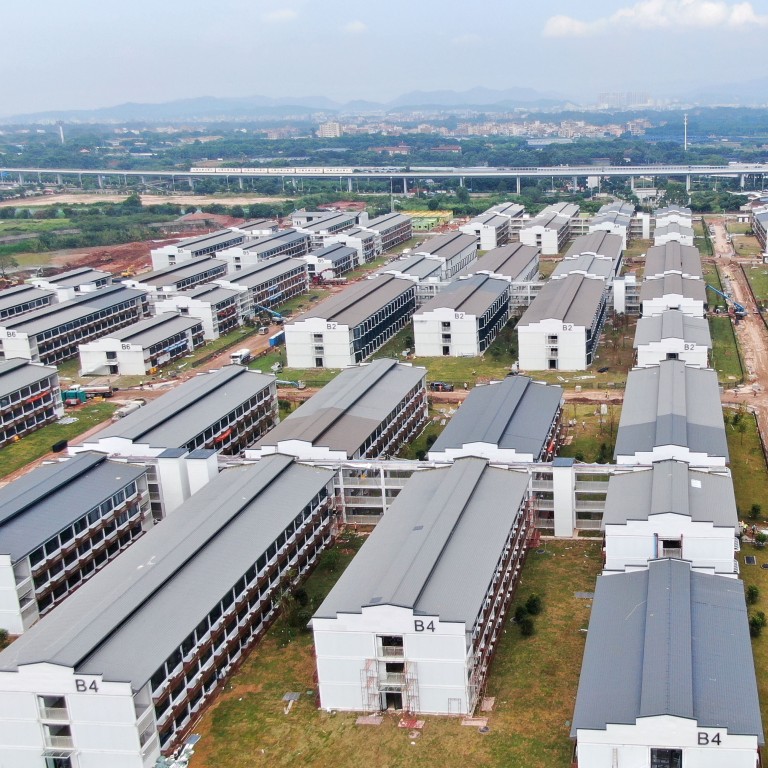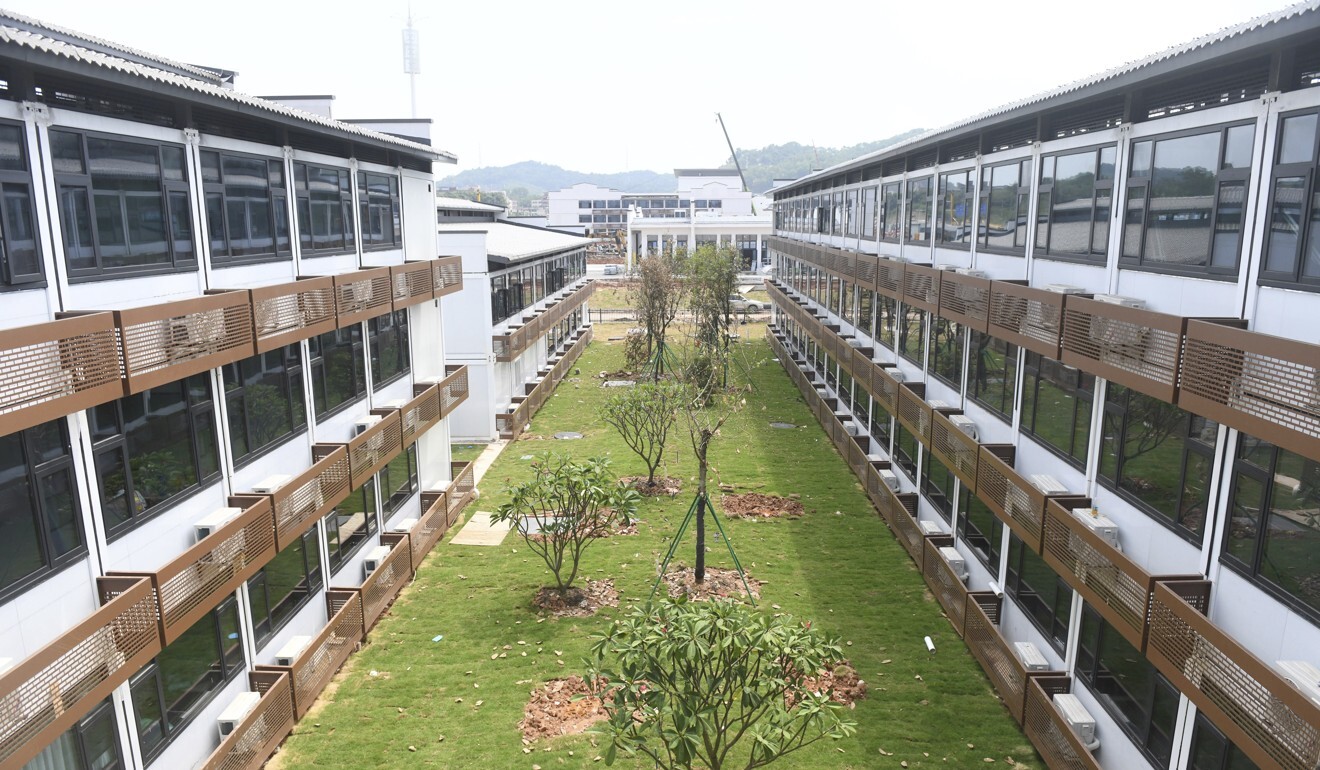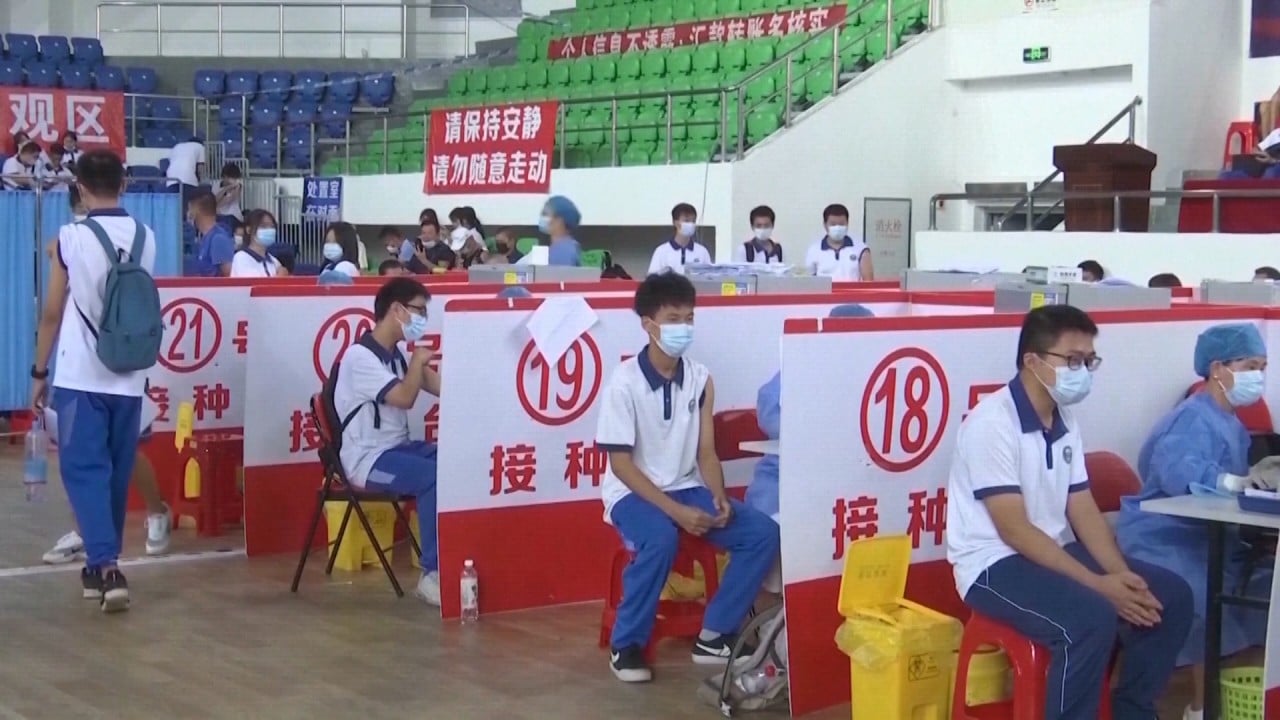
Coronavirus: China wants permanent quarantine centres built for inbound travellers
- City governments have been told to provide 20 rooms per 10,000 people in dedicated facilities by the end of October
- Guangzhou is already making the shift away from using hotels with a new facility due to open with more than 5,000 rooms
City governments have been told to move away from using hotels for quarantine and instead provide dedicated facilities. There should be 20 quarantine rooms per 10,000 people available by the end of October, according to National Health Commission official Cui Gang.
“Centralised quarantine of inbound travellers plays a key role in preventing the spread of Covid-19 to China. Implementing quarantine measures has always been an epidemic prevention task of the utmost priority,” Cui said at a briefing on Wednesday.
Large port cities that see a high number of international arrivals – and potentially Covid-19 cases – have been urged to build large-scale facilities, or “health stations”, that could be used for regular health care as well as emergency needs, Cui said.
Benjamin Cowling, an epidemiologist from the University of Hong Kong, said the question was how long the government was planning to continue the current strategy and require on-arrival quarantine in China.
“It would make sense to construct specialised facilities, and the larger the better. The suggested ratio of 20 beds for 10,000 people sounds reasonable,” Cowling said.

China has banned entry to most foreigners since March 2020, with returning nationals mandated to go through at least two weeks of hotel quarantine, followed by at least one week of at-home observation. Some cities, such as Beijing, have even more stringent rules, requiring 21 days of quarantine for some cases, followed by seven days of observation.
The Guangzhou International Health Station will offer contactless service, with digital check-ins and health and temperature updates, and drones and robots delivering meals and disinfecting the rooms, according to a city government document.
The rooms all have their own air conditioning, ventilation and sewerage systems to prevent cross-infection and the facility includes 2,000 beds for staff to live on-site, it said.
But the facility is just a start for Guangzhou to meet the new requirements – the city is home to 18.68 million people, meaning it will need about 37,350 quarantine rooms.
No overseas fans at Beijing Olympics as organisers unveil coronavirus rules
Leading respiratory disease expert Zhong Nanshan has said that using hotels for quarantine would not be enough to contain highly infectious strains such as the Delta variant.
Almost 80 per cent of mainland China’s international arrivals enter through Guangzhou and nearby Shenzhen, so there are plans to build a similar “health station” in Shenzhen, according to Zhong.
Another Guangdong city, Dongguan, said it was converting existing buildings for a 2,000-room quarantine centre.

01:37
With over 2.19 billion shots in arms, China has fully vaccinated 78 per cent of its population
Even without such facilities, Shanghai has managed to contain outbreaks quickly and the National Health Commission and Chinese Centre for Disease Control and Prevention have called on other places to learn from its experience. Wu Jinglei, director of the city’s health commission, was invited to share tips at a briefing on Wednesday.
“Speed is a very important factor in outbreak control. Shanghai has introduced a flat command hierarchy … and cross-office collaboration remains activated since the start of the pandemic. These ensure we can respond quickly to new outbreaks,” Wu said.
New outbreaks were announced quickly, usually within 24 hours, while contact tracing, transferring people to quarantine, mass testing and other work was under way, he added.
Can I travel to mainland China? A guide to entry restrictions, documents, and vaccination and testing requirements
China has managed to stamp out at least two Delta variant outbreaks, in Guangdong and separately in Nanjing, and remains committed to a zero-tolerance strategy, with authorities using measures like mandatory testing, stay-at-home orders and travel restrictions to contain the spread of the virus.
Guangdong, Henan and Zhejiang provinces have all announced a booster programme for medical and frontline workers, border staff, as well as elderly people and those with underlying conditions. But the Chinese CDC has said booster shots for the general population are still being studied.

